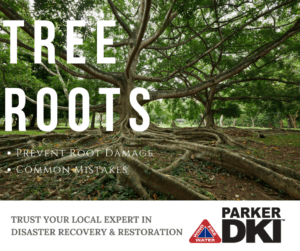It’s that time of year again—the season of twinkling lights, festive meals, and cozy nights by the fire. At DKI Parker, we love seeing homes filled with joy, but we also want to make sure you stay safe while celebrating. With all the hustle and bustle of the holidays, accidents can happen, and that’s where we come in. We specialize in property restoration, so we’re here to help you prevent issues that could lead to bigger problems down the road.
This holiday season, we’ve got a few simple safety tips to help you enjoy your festivities without worrying about any potential mishaps. After all, the only thing that should be on fire this holiday season is your s’mores!
1. Check Those Holiday Lights (Before They Light Up the House!)
We all love the sparkle of holiday lights—whether it’s your Christmas tree or that over-the-top outdoor display. But did you know that faulty lights are a leading cause of house fires during the holidays? Yikes!
Here’s how to keep your light displays looking festive while staying safe:
- Inspect lights before hanging: Look for frayed wires, cracked bulbs, or exposed wiring. If any of your lights look damaged, it’s best to replace them before they’re plugged in.
- Don’t overload outlets: Avoid plugging too many lights or decorations into a single outlet or extension cord. This can overheat the circuit and cause a fire.
- Use the right lights for the right place: Outdoor lights should be rated for the outdoors. Using indoor-only lights outside can lead to issues with water exposure, resulting in electrical hazards.
- Unplug when you leave: It’s easy to forget, but unplugging your lights when you leave the house is an easy way to prevent potential electrical fires.
You’ll light up your home with joy—without the worries about safety hazards.
2. Keep Your Tree Fresh and Hydrated
A fresh Christmas tree is a holiday classic, but dry trees are a serious fire risk. To keep your tree—and your home—safe:
- Water your tree regularly: A dry tree can go up in flames faster than you can say “Jingle Bells.” Keep your tree hydrated by watering it often.
- Place your tree away from heat sources: Keep your tree far from fireplaces, heaters, and radiators to reduce the chance of it drying out too quickly.
- Test the tree’s freshness: If your tree starts shedding needles at the slightest touch, it’s time for a new one. A dry tree is a fire waiting to happen!
A fresh, well-watered tree not only looks great, but it’s also much safer for your home.
3. **Fireplace Safety: Keep It Cozy (and Safe!)
The holidays wouldn’t be the same without a warm fire crackling in the fireplace, but safety is key! Here are a few tips to keep things cozy and safe:
- Clean your chimney: Before you light your first fire of the season, make sure your chimney is clean and free of debris. A buildup of soot or creosote can cause dangerous chimney fires.
- Use a fireplace screen: A screen or fire guard keeps embers contained and away from your carpet, furniture, or holiday decorations.
- Don’t leave candles unattended: Candles add a lovely holiday ambiance, but always blow them out when you leave the room, and never leave them near curtains or other flammable items.
Remember: Your fireplace should add warmth to your home—not turn it into a potential hazard!
4. **Kitchen Safety: A Recipe for Success (and Safety!)
The kitchen is the heart of the holiday season, but it’s also where many accidents happen. Here’s how to keep your cooking safe:
- Stay in the kitchen: Don’t leave the stove or oven unattended while cooking. If you need to step away, ask someone else to watch the food or use a timer to stay on track.
- Use timers: Whether you’re baking cookies or roasting a turkey, set a timer to help avoid overcooking or burning food. Charred food can cause smoke damage, which might require restoration services.
- Watch your clothing: Avoid wearing loose clothing that could catch fire while you’re cooking.
Staying alert in the kitchen ensures you’re not only cooking up delicious meals but also keeping your home safe from potential fire hazards.
5. General Home Safety: A Few Simple Tips for Peace of Mind
As you enjoy the holiday festivities, here are a few simple but essential home safety tips to help keep things secure:
- Test your smoke detectors: Make sure your smoke alarms are working and have fresh batteries. It only takes a few seconds, and it could save your life.
- Check your fire extinguishers: Keep a fire extinguisher handy in the kitchen or near your fireplace. Make sure it’s easily accessible and hasn’t expired.
- Keep exits clear: Whether it’s holiday decorations, extra guests, or presents piling up, make sure your exits are always clear and accessible in case of an emergency.
These simple steps can help you avoid emergencies and keep the good times rolling this season.






 ng on, and children scattered about, it’s important to take extra precaution.
ng on, and children scattered about, it’s important to take extra precaution.